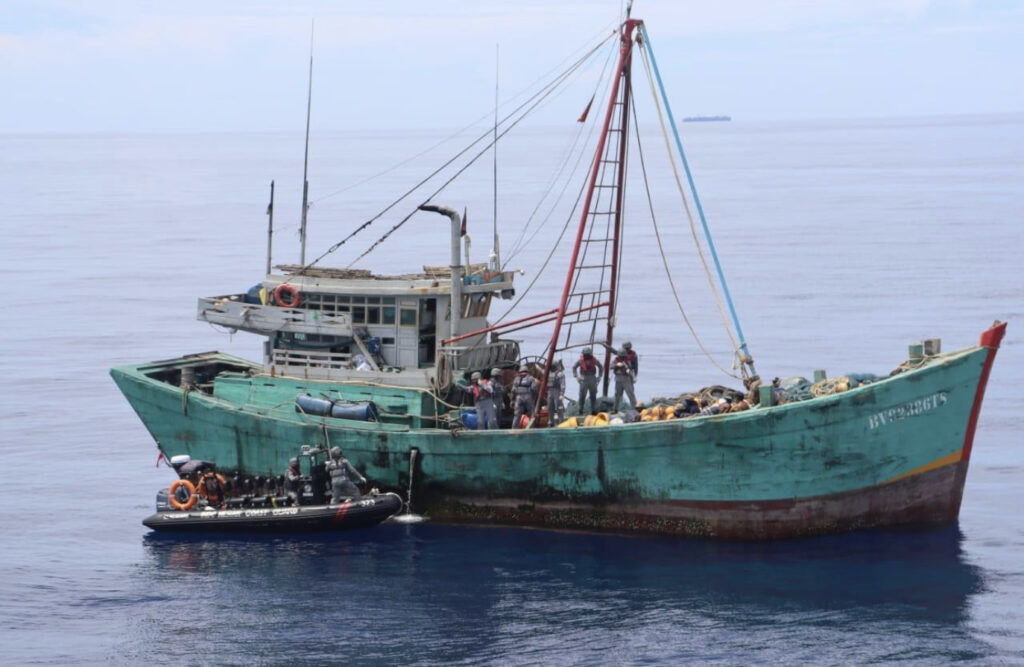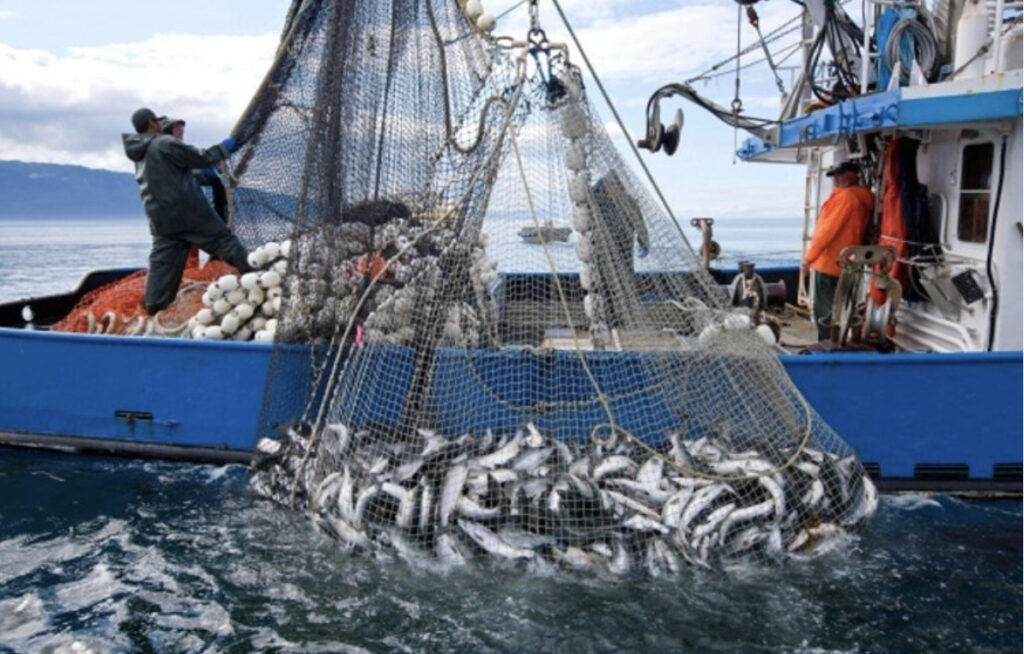Overfishing Needs to be Stopped…
ByDid you know… Billions of people rely on fish for many things like, food, jobs, and keeping our ecosystems stable?!
Why is this happening?/ Who is most at fault?
Our fish populations can not keep up with the growing demand of fish from all over the globe. Illegal, unreported and unregulated fishing is a major contributor to declining fish stocks and marine habitat destruction (“Government of Canada”, 2009.)

Where is this happening?
Overfishing is mostly happening in SouthEast Asia… and in undeveloped and developing countries. Although it “mostly” happens there it still happens in many other parts of the world like Canada and the USA.
How is it affecting the environment?
According to the World Wildlife Fund (2021), the number of overfished stocks globally has tripled in half a century, and today fully one-third of the world’s assessed fisheries are currently pushed beyond their biological limits. If current trends of overfishing and pollution continue, by 2050 the populations of just about all seafood face collapse (“journal of Science”, 2006). This is just one long term affect that can happen, some others are: Changes in species relationships (predator and prey), reduction of economic well-being and marine food webs will alter (“Greentumble”, 2016.)

How is it affecting humans?
Overfishing is a problem that is affecting EVERYONE. Overfishing doesn’t just affect the environment it affects people too. They depend on it to feed their families and to even have jobs. As I stated before, this mostly happens in developing or undeveloped country’s. In many African and South Asian coastal nations, fish may account for as much as 50% of protein in a typical diet. The decline of fish stocks in coastal waters as the result of overfishing and illegal fishing activities is making this important resource much less accessible for some of the world’s poorest citizens (“Government of Canada”, 2009.) Without fish many people will have no food or a job! Overfishing remains a threat to the social and economic welfare of many countries (“Government of Canada”, 2009.)
For Aboriginal communities fishing is more than just food. Fishing plays a big part in Aboriginal and First Nations traditions. It also plays a role in ceremonial traditions, creating important ties between families and individuals and embodying their symbolic ties to the environment. (Ota, Cisneros-Montemayor, 2017.) With no fish, the First Nation communities will be affected greatly. Not only will their traditions be gone, but also their food.

Who can you support to help stop this issue?
3 great organizations/ charities you can go to are:
-Ocean Conservatory: Ocean Conservatory
-Project AWARE: Project AWARE
-Oceana: Oceana
Sources
-A. Cisneros-Montemayo, Y. Ota. (2017). For Indegeninous communities, fish mean more than food. https://theconversation.com/for-indigenous-communities-fish-mean-much-more-than-food-70129#:~:text=It%20also%20plays%20a%20role,them%20into%20action%20in%20nature.
–B. Worm, E.B. Barbier, N. Beaumont, J.E. Duffy, C. Folke, B.S. Halpern, J.B.C. Jackson, H.K. Lotze, F. Micheli, S.R. Palmbi, E. Sala, K.A. Selkoe, J.J. Stachowicz, R.Watson. (2006) Impacts of Biodiversity Loss on Ocean ecosystem Servives. https://www.science.org/doi/abs/10.1126/science.1132294
-Greentumble (2008). Long term affects Overfishing https://greentumble.com/long-term-effects-of-overfishing/
-Government of Canada, fisheries and oceans Canada, Comunications Directorate. (2009). Global Consequences of Overfishing-International fisheries. https://www.dfo-mpo.gc.ca/international/isu-global-eng.htm
-WWF (2021). World Wildlife Fund. https://www.worldwildlife.org/threats/overfishing